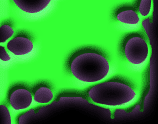|
Activation Energy: The useful quantity of energy available in one cup of coffee.
Bunsen Burner: A device invented by Robert Bunsen (1811-1899) for brewing coffee in the laboratory, thereby enabling the chemist to be poisoned without having to go all the way to the company cafeteria.
Butyl: An unpleasant-sounding word denoting an unpleasant-smelling alcohol.
Cavendish: A variety of pipe tobacco that is reputed to produce remarkably clear thought processes, and thereby leads to major scientific discoveries; hence, the name of a British research laboratory where the tobacco is smoked in abundance.
Chemical: A substance that: 1) An organic chemist turns into a foul odor; 2) an analytical chemist turns into a procedure; 3) a physical chemist turns into a straight line; 4) a biochemist turns into a helix; 5) a chemical engineer turns into a profit.
Chemical Engineering: The practice of doing for a profit what an organic chemist only does for fun.
Compound: To make worse, as in: 1) A fracture; 2) the mutual adulteration of two or more elements.
Eigen Function: The use to which an eigen is put.
En: The universal bidentate ligand used by coordination chemists. For years, efforts were made to use ethylene-diamine for this purpose, but chemists were unable to squeeze all the letters between the corners of the octahedron diagram. The timely invention of en in 1947 revolutionized the science.
Evaporation Allowance: The volume of alcohol that the graduate students can drink in a year's time.
Exhaustive Methylation: A marathon event in which the participants methylate until they drop from exhaustion.
First Order Reaction: The reaction that occurs first, not always the one desired. For example, the formation of brown gunk in an organic prep.
Flame Test: Trial by fire.
Grignard: A fictitious class of compounds often found on organic exams and never in real life.
Inorganic Chemistry: That which is left over after the organic, analytical, and physical chemists get through picking over the periodic table.
Monomer: One mer. (Compare POLYMER).
Natural Product: A substance that earns organic chemists fame and glory when they manage to systhesize it with great difficulty, while Nature gets no credit for making it with great ease.
Organic Chemistry: The practice of transmuting vile substances into publications.
Partition Function: The function of a partition is to protect the lab supervisor from shrapnel produced in laboratory explosions.
Physical Chemistry: The pitiful attempt to apply y=mx+b to everything in the universe.
Polymer: Many mers. (Compare MONOMERS).
Quantum Mechanics: A crew kept on the payroll to repair quantums, which decay frequently to the ground state.
Rate Equations: (Verb phrase) To give a grade or a ranking to a formula based on its utility and applicability. H=E, for example, applies to everything everywhere, and therefore rates an "A." pV=nRT, on the other hand, is good only for nonexistent gases and thus receives only a D+, but this grade can be changed to a B- if enough empirical virial coefficients are added.
Research: (Irregular noun) That which I do for the benefit of humanity, you do for the money, he does to hog all the glory.
Scientific Method: The widely held philosophy that a theory can never be proved, only disproved, and that all attempts to explain anything are therefore futile.
Spectrophotometry: A long word used mainly to intimidate freshman nonmajors.
Spectroscope: A disgusting-looking instrument used by medical specialists to probe and examine the spectrum.
Ytterbium: A rare and inconsequential element, named after the village of Ytterby, Sweden (not to be confused with Iturbi, the late pianist and film personality, who was actually Spanish, not Swedish). Ytterbium is used mainly to fill block 70 in the periodic table. Iturbi was used mainly to play Jane Powell's father.
|

